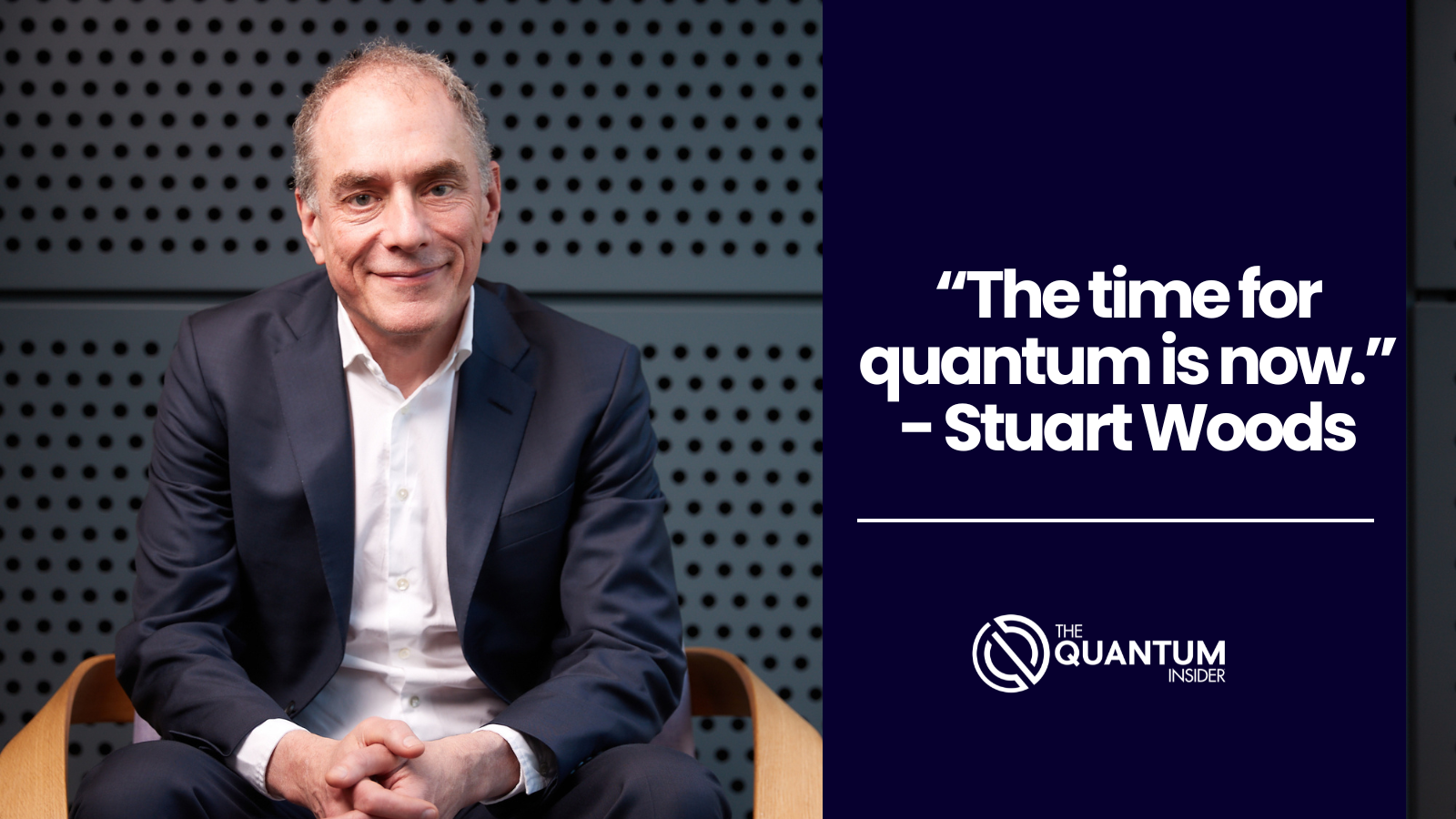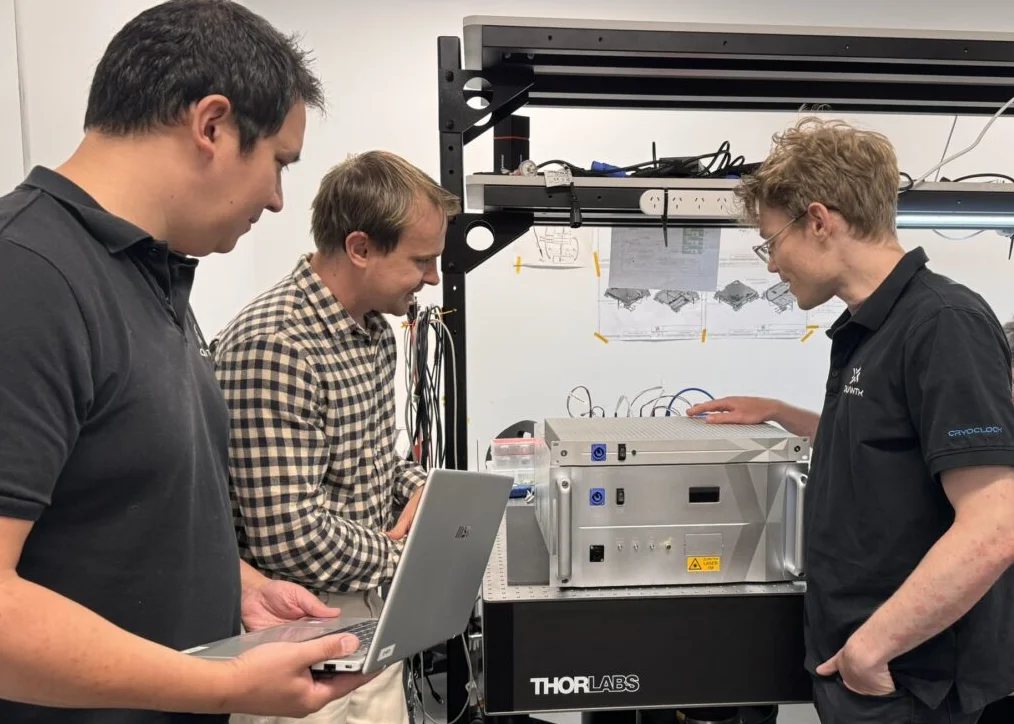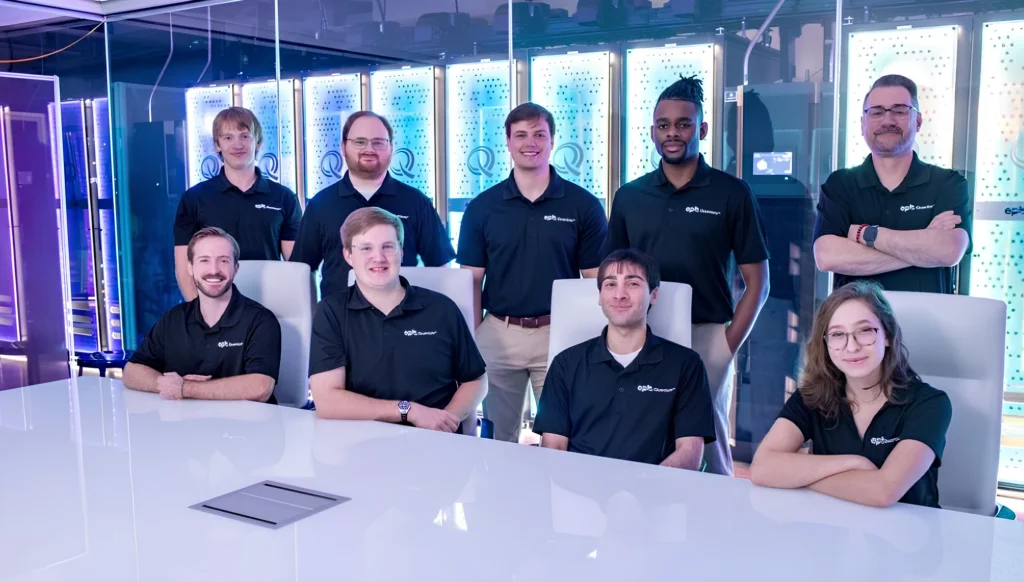Stuart Woods is the newly appointed Chief Operating Officer of Quantum Exponential. He has more than 30 years of experience leading technology companies, ranging from startups to publicly traded, multi-million-pound businesses. Previously Managing Director at Oxford Instruments NanoScience, Stuart explains why he is excited to move from an operational commercial role in the quantum industry to investing in quantum startups.
When you’re sitting on a technology curve that is as steep as we are experiencing now, the only way that we can see change is by looking backwards. I fundamentally believe that’s where we are with quantum. We’re climbing up the face of a mountain.
Where we are on the curve
Having lived through the telecoms boom – and having left my advanced degree study in organic chemistry, in what is now called computational chemistry, to work in telecoms – I can see clear parallels with quantum technology today. We now take it for granted that we have high-speed internet, broadband and wifi, but at the height of the telecoms boom in the early 2000s, they just didn’t exist. In the same way, with quantum, I don’t see why in the next ten years we won’t be living with quantum technologies that are unimaginable now.

In fact, there is a fundamental difference between what happened in the telecom boom and what will happen with quantum that makes it even more exciting. At no point before in human history have we been able to take cutting edge technology and immediately share it with millions of people – through cloud access. That element of broad democratisation and availability of the technology means we’re able to question and correct our developments more quickly and thoroughly than ever before – while also exploring channels to market and product configurations for specific applications at lower cost points. It gives us much better safeguards against failure and I truly believe that for investors, the time is now for quantum – it is an asset class needed by all portfolios.
Although quantum computing gets most of the media attention, quantum technologies encompass sensing, networks, encryption and infrastructure. Each one is at a different stage of development. I believe we will see successes in quantum sensing a lot earlier than complete and total successes for computing. There is an element of maturity that we’re yet to see with quantum computing. However, we may have the ability to use quantum sensors to understand geographical phenomena like subsidence and sinkholes as soon as within the next year. Just as autonomous vehicles drove professional mapping to the consumer – which led to easier travel – quantum sensors will lead to an understanding of the planet which will heighten and focus the immediacy of climate change.
Applying commercial experience to investment
Progress in any area of quantum can only be achieved with the correct investment. My career so far has been within the product and commercial side of technology businesses, so moving to the financial side is a chance to make changes with an outsider’s perspective and understanding of what can be commercialised and what business models work for different technology products. I know that finance could be made more efficient and that different companies at different levels of maturity could benefit from a more positive and constructive finance environment with venture capital.
I think that is one of the strengths of the team at Quantum Exponential, there is a balance between commercial, technical, and operational understanding. When you bring those together, I believe you can then provide a truly full service of venture capital funding – and this is exactly what quantum needs. We can provide the right investments to startups in such a way that they’re synergistic, and cooperate well within an ecosystem together; we can create a market at scale providing a return on investment.
What makes a successful quantum startup
A business needs a good product, a customer and a channel. For businesses in the quantum computing space, cloud access to quantum is crucial in developing the market. For almost all businesses, having a quantum computer will be out of reach, so accessing quantum compute power through the cloud from IBM, Microsoft, Amazon, Google, or your own cloud will be the standard route to market. Even sensor solutions can be cloud enabled – most large scale mines or even the London Tube network is remotely monitored as a service. Never forget that selling a product over a service comes with more costs and limits your short term roadmap options.
In any area of quantum technology, assuming that the business is working on a viable idea, the dynamics of the team are the biggest indicator of whether a startup will succeed or fail. The importance of teamwork just can’t be overstated. In a fast-paced business with high risks, the first job of the founder is to build a positive team. Then to nurture that team with a shared vision, good communication and high levels of trust. Your team will be stress-tested daily and you will have to deal with failure more often than success. If you need to second guess your team then you’ve lost.
Ultimately, it doesn’t matter what your company is or what you’re doing, it’s the potential of your people and team that will result in your success. Through acquisitions and financial investment, you are investing in people. And that’s why I’m very passionate about joining the team at Quantum Exponential.
https://www.linkedin.com/in/stwoods12/
If you found this article to be informative, you can explore more current quantum news here, exclusives, interviews, and podcasts.

















